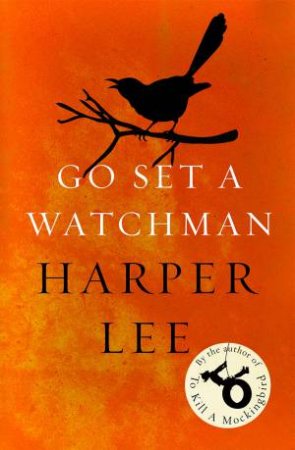


And then there are those who insisted all along that deeper scrutiny revealed a few warts even on the Atticus of Mockingbird. Some readers welcome the prospect of an Atticus who turns out to be human after all, no matter how ugly the humanity on display. Although the disclosures about Atticus are repellent, one hopes that adults can withstand an imaginary encounter with nastiness (as well as the imaginary death of another important character). Initially, Watchman seems to offer a more adult perspective than Mockingbird’s tightly focused child’s eye, indicating that Jean Louise will finish losing her innocence, dragging several million readers unwillingly with her. Scout must come to terms with the revelation that her father is not Saint Atticus, leaving Watchman’s readers to struggle with the same problem: we’re all Scout Finch now, shocked at discovering our father figure has feet of Alabama clay. The slender plot of Watchman hangs on this disclosure. This is the dilemma faced not only by readers of Watchman, but by Jean Louise (Scout) Finch, who returns home during the civil rights movement to find the father she thought despised racism defending segregation. If we have grown up admiring an idealised father figure like Atticus, incorporating him into our value system, then the sense of betrayal at finding him espousing immoral views may be real, and profound. This process is amplified when the story converges with readers’ own sense of personal development.

Because it’s internalised, reading closes the gap of detachment we feel watching others enact a story characters we only imagine entwine with our own thoughts, histories and perceptions.

The devotion that readers can feel to imaginary characters is a strange and wonderful thing, at the heart of the cognitive mystery that is the reading process. The question of whether it may do any good morally is more complicated, and circles around the outrage so many readers report at discovering Atticus Finch, that beloved imaginary Abraham Lincoln of the civil rights movement, spouting racist bile. The answer to whether Watchman is any good aesthetically is simple: not very. There’s a reason Mockingbird is so loved: it is charming, beautifully controlled and heart-warming. I f we accept for argument’s sake that Go Set a Watchman, Harper Lee’s premature sequel to To Kill a Mockingbird, has been intentionally published by its author, we are left with only two significant questions, both about value: is it any good, and does it do any good? Mockingbird indisputably did quite a lot of good, and it’s very good at what it sets out to do.


 0 kommentar(er)
0 kommentar(er)
